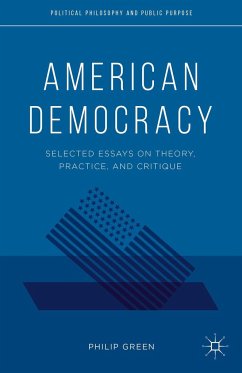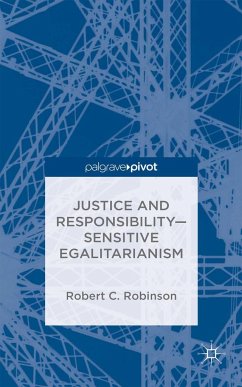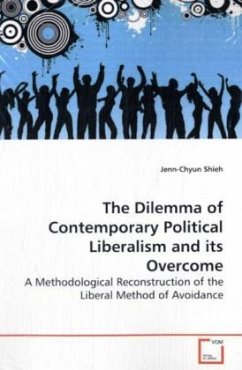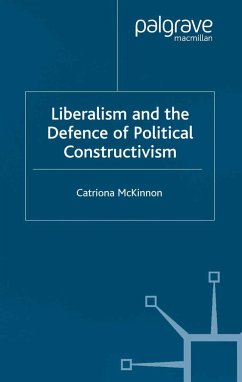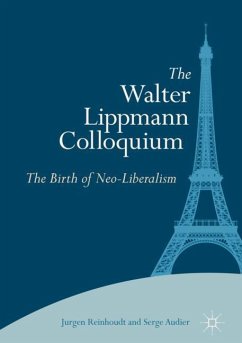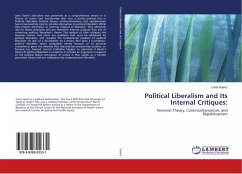
Political Liberalism and Its Internal Critiques:
Feminist Theory, Communitarianism, and Republicanism
Versandkostenfrei!
Versandfertig in 6-10 Tagen
39,99 €
inkl. MwSt.

PAYBACK Punkte
20 °P sammeln!
John Rawls's liberalism was presented as a comprehensive theory in A Theory of Justice and transformed later into a strictly political one in Political Liberalism. Feminist theory, communitarianism, and republicanism have unsuccessfully tried to provide alternatives to political liberalism. While they present themselves as external critiques of liberalism, they ultimately rely on liberal principles and are therefore internal critiques that aim at correcting political liberalism's theory. The analysis of their critiques has however shown that there are problems that must be addressed by politic...
John Rawls's liberalism was presented as a comprehensive theory in A Theory of Justice and transformed later into a strictly political one in Political Liberalism. Feminist theory, communitarianism, and republicanism have unsuccessfully tried to provide alternatives to political liberalism. While they present themselves as external critiques of liberalism, they ultimately rely on liberal principles and are therefore internal critiques that aim at correcting political liberalism's theory. The analysis of their critiques has however shown that there are problems that must be addressed by political liberalism, and revealed the fundamental problem of political liberalism: Its lack of a foundation. As a theory that lacks a foundation, political liberalism seems acceptable merely because of its practical convenience given the diversity that characterizes present-day societies, or because our favored current traditions happen to patronize it. Rawls's theory of political liberalism is revised so it includes an argument in support of the political liberal conception of justice. It thus stands as a morally grounded theory without collapsing into comprehensive liberalism.






